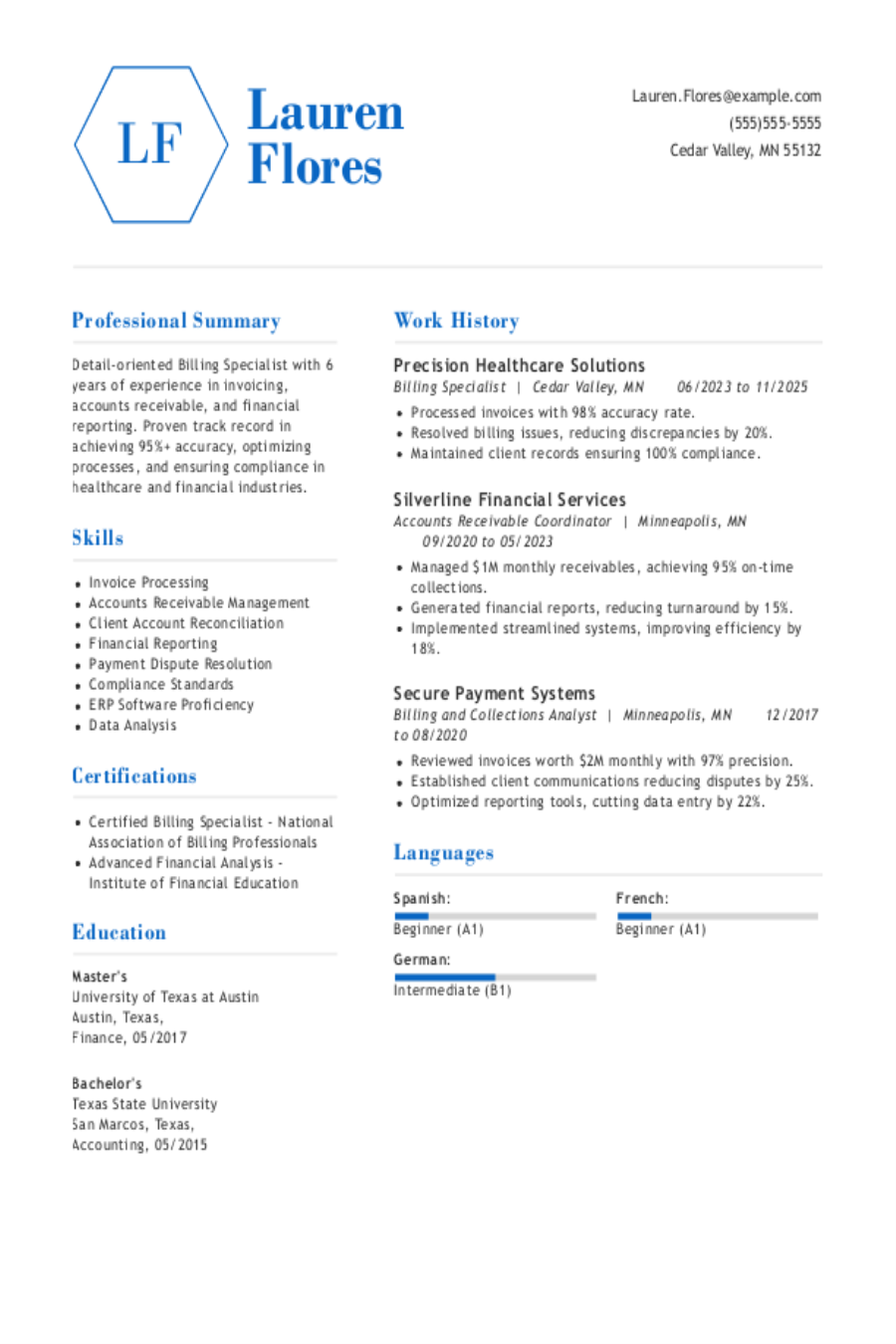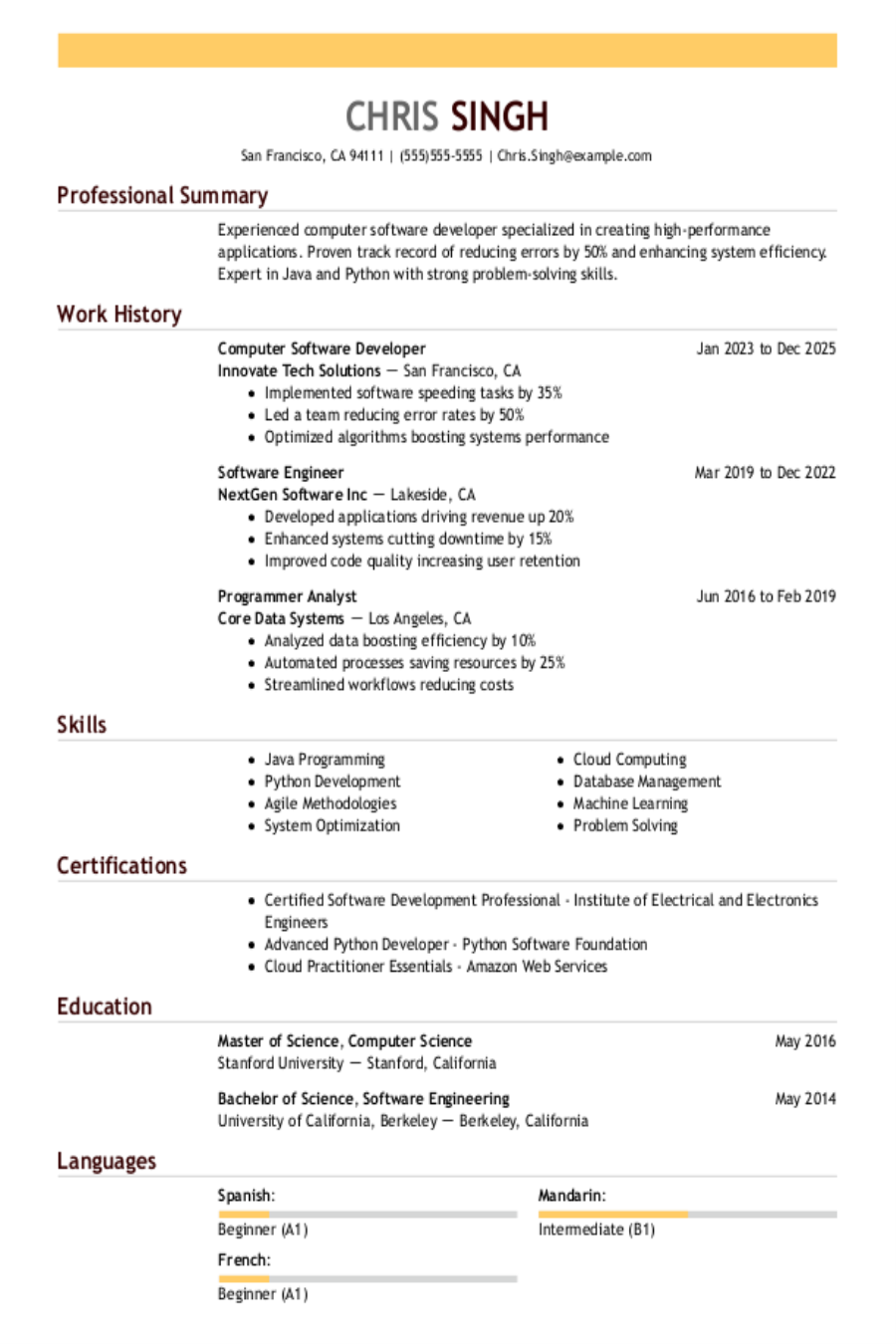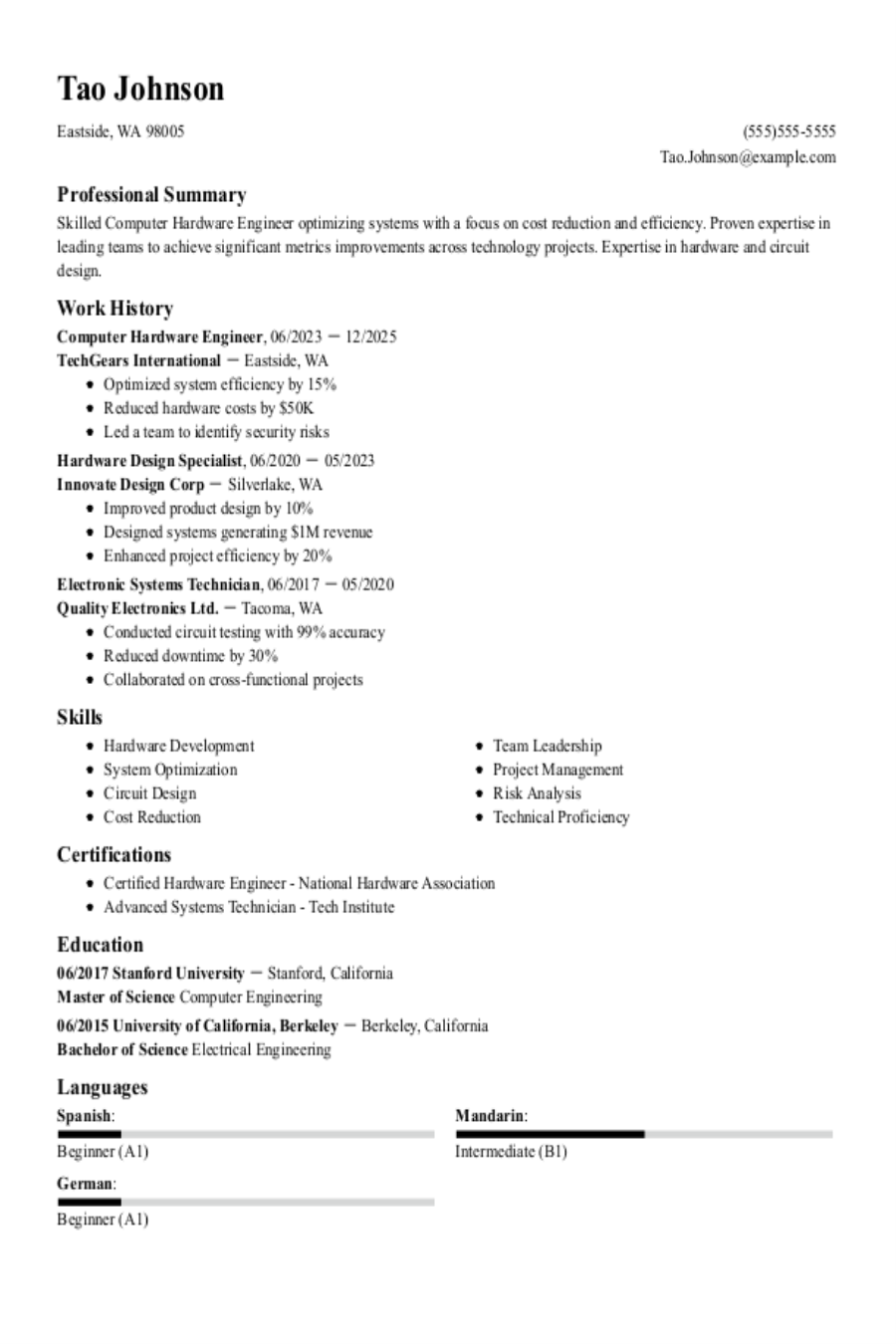Table of contents
Managing projects is like orchestrating a symphony of tasks, timelines and team dynamics, right? Hitting that sweet note of project success is both an art and a science.
The not-so-secret weapon? Project management skills.
Project management skills are the key to making every project hum and whir like a well-oiled machine, and you’re here to learn all about them.
Here’s what we offer:
- The definition of project management skills.
- Key project management skills in today’s job market.
- How to list project management skills on your resume.
- How to improve your project management skills.
- Extra resources for other skill sets.
Are you working on your resume? If so, have you considered using a AI resume builder? Builders are an easy way to put together a strong resume in minutes — and you’ll get hundreds of project management skills ideas you can add to your resume with a click.
What are project management skills?
Project management skills are the abilities required to plan, execute and oversee projects. Effective project managers get things completed on time and within budget, without losing sight of objectives and quality standards.
Why are they so important? This skill set is crucial because it helps organizations achieve their goals efficiently, manage resources wisely and adapt to changes effectively. Take all of this together, a company with good project managers will have better project outcomes and a competitive advantage.
Sure, they come in handy in any industry, but there are industries in which project management skills are core to the job. People who work in construction, information technology (IT) and health care are more likely to work in a project management role or need a similar set of skills.
Next, we’ll list some of the most important and widely used project management skills.
20 key project management skills to include on your resume
It’s one thing to have a lot of skills — it’s another thing to know which skills are in demand and to target them effectively.
We’ve seen thousands of project management resumes — literally — so we can give you an overview of the skills we see pop up with the greatest frequency. We’ve broken them into five categories so you can see them at a glance.
Technical skills
At the heart of project management, there are two things: processes and people. Let’s start with the processes and the hard skills that make for an excellent project manager:
- Understanding of project management methodologies (for example, Agile, Waterfall, PRINCE2)
- Proficiency with project management software (for example, Microsoft Project, Trello, Asana, JIRA)
- Budgeting and financial forecasting
- Risk management and analysis
Interpersonal skills
As I said above, the other half of project management is people. You can have all the technical skills in the world, but you won’t get anywhere if you can’t communicate your ideas or motivate a team. That’s why soft skills are so important.
Here are a handful of interpersonal skills the best hiring managers tend to have:
- Team leadership and motivation
- Conflict resolution
- Stakeholder management
- Emotional intelligence
Communication skills
You’ll get stuck in first gear if you can’t communicate effectively. Project managers use communication skills every day in a variety of ways. The keywords below would be great additions to any project manager’s repertoire:
- Clear and concise verbal and written communication
- Effective listening and feedback mechanisms
- Presentation and public speaking abilities
- Persuasion and influencing
Organizational skills
This one is huge. Project managers are the kings (and queens) of organizing. When they’re at their best, no one compares. Here’s a handy breakdown of words you can use to describe your powerful organizational skill set:
- Time management and prioritization
- Task and resource allocation
- Workflow and process optimization
- Documentation and reporting
Problem-solving skills
Project management is all about problem-solving. One rule of thumb in this world: don’t mention a problem if you don’t have a solution. The list below includes just a few examples of the skills project managers use every day to solve even the most complex quagmires:
- Analytical thinking and decision-making
- Creativity and innovation
- Adaptability and flexibility
- Learning from success and failure
How to list project management skills on your resume
What’s the point of skills if you don’t have anywhere to put them? That’s where your resume comes in.
Your resume is the perfect forum to showcase your project management skills, demonstrating to potential employers that you have the expertise and experience to excel in the role you’re applying for. Let’s break it down step by step.
Highlight skills from the job description
When reading a job description, pay close attention to the required skills and qualifications, keeping an eye out for specific keywords.
This will help you tailor your resume to fit exactly what the employer is looking for, as well as ensuring it passes through applicant tracking systems (ATS) successfully. These systems often scan resumes for keywords mentioned in the job description before a human ever sees them.
Here’s how to identify project management skills in the job description (skills are in bold):
We are seeking an experienced project manager to oversee cross-functional projects from inception to completion. The ideal candidate will have a proven track record in managing budgets, leading teams and implementing Agile methodologies. Responsibilities include risk management, stakeholder communication and ensuring timely delivery of project milestones. Proficiency in Microsoft Project or JIRA is preferred.
In step two, we’ll show you what to do with the highlighted keywords.
Always customize your resume to match the project management skills listed in the job description. This demonstrates a direct match between your capabilities and the job requirements.
Create at least one skill section
Including a dedicated skills section on your resume allows you to highlight your project management expertise clearly and concisely.
When you add those skills to your resume, make sure they are relevant to the job you are applying for, using the exact terms and language found in the job description.
When labeling your skills section, consider using descriptive headers that align with what you’re showcasing. Simple headers like “Skills” work well. However, if you’re emphasizing a specialized skill set, consider titles like “Core Competencies” or “Summary of Qualifications” to draw attention to your expertise.
If your resume includes multiple skills sections, feel free to get creative and tailor the titles to reflect the specific types of skills within each section, such as “Technical Skills” for software and tools proficiency.
Consider using a functional resume if you’re just starting your career and need to focus on skills rather than work experience. Also known as a skills-based resume, this format gives more space for the abilities you’d like to highlight.
Add the skills throughout your resume
Where else do you put the skills highlighted in the job description? Throughout your entire resume!
Your work history section is a great place to start. Here’s an example of what that looks like, with the skills in bold:
Project Manager
ABC Corp, 2018-2021
- Successfully led a cross-functional team of 15 to deliver a major software development project using Agile methodologies, completing the project 10% under budget and two weeks ahead of schedule.
- Managed project budgets exceeding $500,000, closely monitoring expenses to avoid cost overruns.
- Implemented a comprehensive risk management plan, identifying potential issues early and developing mitigation strategies.
- Enhanced stakeholder communication, conducting weekly update meetings and preparing detailed progress reports.
Go beyond your work history section. You can add skills to your professional summary, resume objective and even your education section. Skills will fit virtually anywhere in your resume.
Don’t forget about your cover letter
Your resume is only half of the puzzle. Your cover letter is essential, too.
When you write a cover letter, show how you’ve applied your project management skills to achieve success in previous roles. Highlight specific achievements that demonstrate your expertise, such as managing a project under budget or innovating with Agile methodologies to improve team productivity.
Your cover letter is a great chance to personalize your application and give life to your skills beyond the bullet points in your resume — check out some cover letter examples for inspiration.
How to develop your project management skills
If you’re looking to improve your project management skills or learn them for the first time, you have a bunch of options.
Here are seven ways you can develop this skill set, with specific examples to back up each idea.
Pursue a project management certification
Why not get some recognized credentials as you build your project management skills? Here are three of the most popular project management certifications:
- Project Management Professional (PMP) – Offered by the Project Management Institute (PMI), it’s one of the most recognized certifications in the field.
- Certified ScrumMaster (CSM): For those interested in Agile methodologies, this certification from Scrum Alliance is invaluable.
- PRINCE2: Popular in the UK and Europe, PRINCE2 focuses on process-based project management.
Take a project management course
If you don’t have time for a certification just yet, consider taking a class. You could learn in person at a local school, but these days online learning is a popular choice, and there are a ton of options, including:
- Coursera and edX: Platforms like Coursera and edX offer courses from universities and colleges around the world, including project management fundamentals and specialized topics.
- LinkedIn Learning: Offers a wide range of project management courses covering basics, software tools and specific methodologies like Agile and Scrum.
Join a professional association
The best project managers learn from their peers, and professional organizations offer a great forum for connecting with job seekers just like yourself. They often offer certification courses, helpful advice and forums where you can get in touch with the community. The top associations in the U.S. are:
- Project Management Institute (PMI): Membership offers access to resources, networking opportunities and professional development events.
- Scrum Alliance: Ideal for those focusing on Agile and Scrum methodologies, offering resources, conferences and community engagement.
Read up on the subject
Learn the old-fashioned way by picking up a book. There are tons of books on the subject, so it can be tough to narrow it down. Here are two classics to get you started:
- “A Guide to the Project Management Body of Knowledge (PMBOK® Guide)” by PMI: Considered the bible for project management professionals.
- “Scrum: The Art of Doing Twice the Work in Half the Time” by Jeff Sutherland: Provides insights into Agile project management.
Familiarize yourself with project management software
If you’re one of those people who learn best by getting your hands dirty, jump right into some project management software. Here are four of the most widely used programs:
- Trello and Asana: For task and project organization.
- Microsoft Project: For detailed project planning and scheduling.
- JIRA: For Agile project management, especially in software development.
Attend workshops and seminars
Both online and in-person workshops can provide deep dives into specific areas of project management, offering the chance to learn from experienced practitioners.
Network with other project managers
Engaging with peers through forums, LinkedIn groups or local meetups can provide insights, advice and knowledge sharing that’s invaluable for growth.
Learning project management skills is a continuous process, but anyone can do it. Give yourself time, be patient and your skills will be as sharp as anyone’s.
More skills resources
Haven’t found what you’re looking for? Maybe one of our other skills guides can help:
Project management skills — key takeaways
It’s all about people and processes
Effective project management requires a mix of technical skills (like understanding methodologies and tools) and soft skills (such as leadership, communication and problem-solving abilities).
Tailor your skills to the job description
Matching your skills to the job description is your strategy for standing out in a sea of applicants, making your application more likely to pass the applicant screening process.
Familiarize yourself with tools
Comfort with project management software and tools is increasingly important. Highlight your proficiency with Microsoft Project, Trello, Asana and JIRA to showcase your technical aptitude.
Continuous learning is key
The field of project management is ever-evolving, with new methodologies, tools and best practices emerging regularly. Professional development is essential to staying relevant and effective.
Was this information helpful? Let us know!
Don is a Certified Professional Resume Writer (CPRW) with more than 10 years’ experience creating digital content, including four years helping job seekers develop their careers. He holds an M.S. in Journalism from Northwestern University.
More resources

Only 1 in 10 Resumes Include Measurable Results, New Analysis of 18.4M U.S. Resumes Finds
Resume Now takes a closer look at measurable results on resume...

Top Entry‑Level Careers That Are Fast‑Growing, Higher‑Paying, and AI‑Resistant
Resume Now identifies 12 promising careers that offer strong s...

What Does It Mean if an Interviewer Says "Good Luck" or "We'll Be In Touch"?
Read on to learn the meaning behind these standard post-interv...

Billing Resume: Examples & Templates
Build & download your Billing resume in a few simple steps. Br...

Interview-Winning Computer Software Resumes Examples and Tips
Build & download your Computer Software resume in a few simple...

Computer Hardware Resume: Examples & Templates
Build & download your Computer Hardware resume in a few simple...
